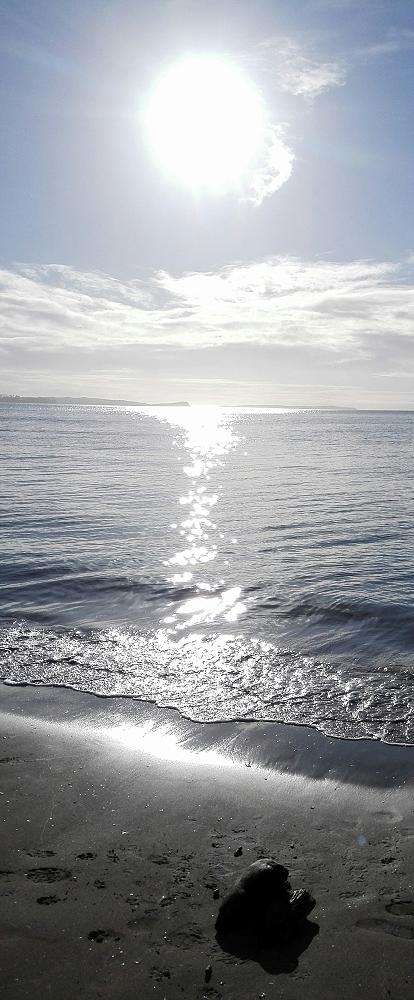
Not Your Usual Meeting
Wānanga is a Māori term that refers to a particular style of meeting and learning environment, a model and process for the acquisition and transfer of knowledge, a meeting of hearts and minds that are willing to explore and discern together. Recently 10 people - each with a kete full of knowledge and experience - came together for a wānanga on the Church’s decade theme on climate justice “Rekindle the Vā of Papatūānuku.”
In my work, there are many meetings to be attended. The buzz of notifications across my computer screen is a constant, alerting me to the next virtual or in-person experience. On any given day, a surfeit of engagement springs forth demanding all of one’s attention and time, and our ability to digest and parse large amounts of information is continually put to the test. Sometimes it can feel like information overload.
So it is always with real pleasure and a sense of great privilege that I am able to enter into the space of the wānanga, which in many ways is the antithesis of modern meeting culture. Wānanga in this context is a Māori term that refers to a particular style of meeting and learning environment, a model and process for the acquisition and transfer of knowledge, a meeting of hearts and minds that are willing to explore and discern together.
And so it was that a couple of weeks ago, a gathering of ten people came together for a wānanga on the Church’s decade theme on climate justice “Rekindle the Vā of Papatūānuku.” There was great diversity in our group. We had Taha Māori and Tauiwi members, ordained and lay people, young and old, we were gender diverse, some of us came from academia, one of us had a lived experience of disability, we had specialists in the area of climate change and climate justice. We had Connexional leadership present, and each person came with a kete full of knowledge and experience, ready to share.
We gathered at Vaughan Park Retreat Centre, at the south end of Long Bay Beach, North Shore, Auckland. I make mention of the environment deliberately, as respect and reverence for the natural world/ te ao tūroa, is an important tikanga of wānanga. This involves acknowledging the spiritual significance of the environment and recognising that we are not separate from the natural world, but rather a part of it. From our opening karakia on the beach to the closing karakia gathered outside in a sacred circle, our entire wānanga experience was accompanied by the presence of the sea and the sound of the surf.
Another tikanga of wānanga is the emphasis on the transmission of knowledge through oral tradition. This involves the sharing of stories and other forms of traditional knowledge from one generation to the next, ensuring that knowledge is passed down in a way that strengthens shared values. Our storytelling began in the evening of the first day and I share some small snippets that came in response to the question “What is your first memory connecting to nature?”
“My earliest memory is of touching grass. When I was small, it was common for me to go barefoot. The older I got, the more things I put on between myself and the earth.”
“I have memories from way back of climbing in trees and making huts and underneath those trees there was a creek, you probably call it a ditch. And there were eels in that ditch and I can remember catching them, so that is the memory I am going to share. I decided to share it because catching those tuna and being aware of those tuna is probably one of my earliest memories of any biodiversity, which wasn’t part of a colonist plan. Those tuna and their ancestors where here before the colonists were.”
“My earliest memory connecting to the land, was in 2018, when my dad called the family to go back home to Tonga. I remember that the first day I got there we all went to where my grandfather was buried. Every family has got a cemetery and my dad’s family cemetery is right beside the beach. Once we landed we all just walked to the beach to see grandpa and I felt home as we walked towards the cemetery. I walked passed the cemetery and went right to the sand and standing on the sand looking out to the ocean that was the first time I really connected to the land.”
The wānanga was not your usual meeting. In many ways for all of us present, it was an opportunity to slow down and go deep, exploring our understanding of the vā, and what it means to connect with Papatūānuku as well as understanding intersectionality and climate justice. The fruits of this wānanga will be seen at Conference this year, when we launch a resource for churches to engage with theme “Rekindle the Vā of Papatūānuku.”
Glossary
Wānanga - term used in Māori culture to refer to a type of higher education institution or learning environment, as well as a process of acquiring and transmitting knowledge.
Vā – term used in many Pacific cultures to denote the space between, relationship
Papatūānuku – Earth mother
Kete – basket, kit
